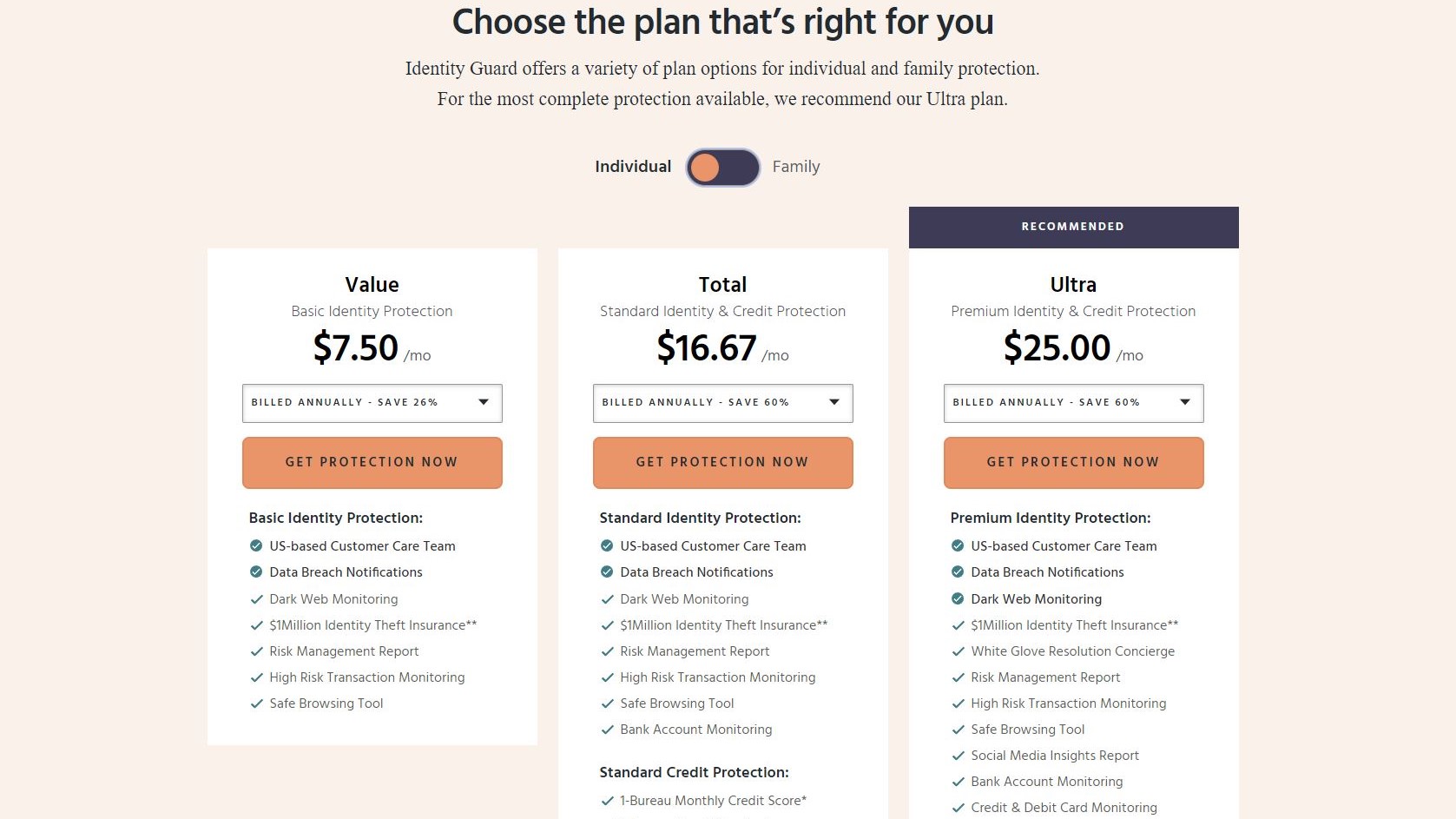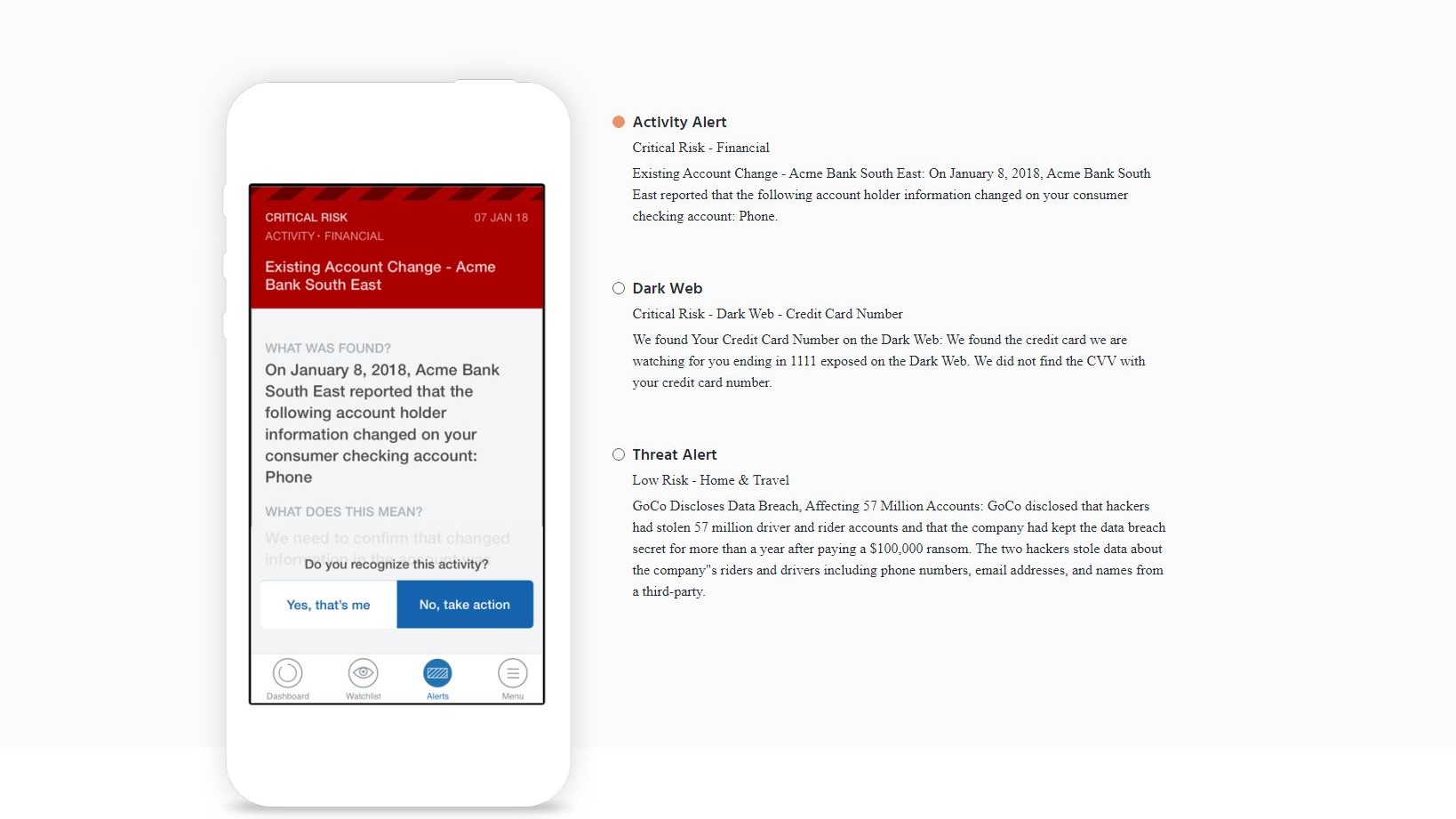Identity Guard
Our series on identity theft protection apps will evaluate the features, pricing options, competition, and also the overall value of using each app. However, these are not full hands-on reviews since evaluating identity theft protection apps is almost impossible. It would require several months of testing, purposefully hacking accounts to see if the protection app works, handing over personally identifiable information, performing multiple credit checks, and risking exposure of the reviewer’s personally identifiable information.
The more you know about your own online identity the better. It means you can monitor your credit effectively, inspect bank accounts, and become more aware of dangers. With good information, we can react to and even thwart identity theft; without good information, we might feel helpless as though there are hidden adversaries impersonating us and performing criminal acts without our knowledge. The entire field of identity theft protection depends on the information available to you and the steps required to resolve problems.
Identity Guard is an app that addresses one half of the identity theft protection equation. The app includes a wide array of powerful features, including the ability to consult with an expert that can help you recover your identity. The glaring issue is that Identity Guard tends to be lighter on providing more details about how the app can help you and what it does. This starts with a website that is not extensive enough - it almost feels like it was created by a marketing company as an online brochure. In the app itself, the lack of details makes an app like Norton LifeLock much more impressive in terms of relaying what is actually happening when these tools try to protect you, assist you, and resolve identity theft problems.
Still, despite these shortcomings, Identity Guard is a veteran in the space since 1996. It states it has over the last two decades protected over 47 million identities, and resolved over 140,000 cases of identity fraud.

Plans and pricing
Let’s start with the costs, and right away Identity Guard provides the pricing (unlike a major competitor, Norton LifeLock, which has so many plans and tiers for which features you gain access to at various pricing levels that it’s like playing a role-playing game, and a poorly designed one at that.) Identity Guard has two main groups of plans: one for individuals and another for families, with the latter having a significantly higher cost. Then, under each group, there are three main tiers- Value, Total, and Ultra. At the lowest tier, the Value plan unfortunately does not include credit monitoring, nor an actual credit score - which are some of the more powerful features offered here. (Some identity theft protection apps will monitor your credit but won’t actually provide the full credit score.) For the credit score, you have to upgrade to the Total plan or Ultra plan.
Value costs $8.99 per month ($7.50 monthly when paid annually on the individual plan) and offers essential features such as alerts for high risk transactions, a risk management score, and $1 million of insurance coverage for identity theft. While it does not offer a VPN, it does have a safe browsing extension, with a shortcoming that this is not that different from using a free blocker that runs in Chrome as an extension.
With an upgrade to the Total plan ($19.99/month, or $16.67/month annually on the individual plan), you gain access to a credit lock, financial transaction monitoring, and credit bureau monitoring in addition to a credit score. Identity Guard includes monthly monitoring for a single credit bureau, although some others offer access to all three credit unions.
At the Ultra level ($29.99/month, or $25/month annually on the individual plan), you gain access to credit and debit card monitoring, 401k and investment account monitoring and criminal and sex offense monitoring features.
All plans offer customer support, with a “U.S.-based dedicated case manager,” via phone, or email. The support is six days a week, Monday to Friday, 8 AM to 11 PM, and Saturday, 9 AM to 6 PM. They are closed on Sundays. The targeted response time for emails is 24 to 48 hours.
We did not find a free trial.
Interface
Identity Guard is not the app for you if you want extensive descriptions of every feature explained in detail and an obvious dashboard with tons of handholding for each and every step along the way. Once again, it seems to us that the marketing department was overly involved. There are notices on the website about IBM Watson and a big logo on the dashboard as a further reminder - although the paying customer might not realize that a super-intelligent mainframe is working on your behalf. IBM Watson is likely correlating some of the identity tracking information and alerting you to problems, but for the customer, what matters is that it works - not why it works.
The app also emphasizes the essential basics of credit scores and credit monitoring, and that’s certainly of value in terms of identity protection. Still, there isn’t as much information about some other areas, such as criminal activity or fraud, banking issues or credit card problems, or actual identity theft apart from the information reported through a credit agency. Additionally, the interface doesn’t include enough tips and instructional material to guide you through the process nor to understand the dangers.
Features
With Identity Guard, you’re gaining access to a fairly standard set of monitoring and tracking tools, most of them geared to those who care about their credit. The one major exception to this is that the two upper level tiers include an actual credit score check, which can help you determine whether there is suspicious activity, and then follow-up on it.

In terms of the more basic features, the app does alert you about activity related to your bank account and other personal info, such as if there was suspicious activity over the phone where someone tried to use your bank account. The app provides consultations with experts who can guide you through any recovery or fraud remediation steps. Identity Guard doesn’t note whether these are licensed private investigators, which is the staple feature of IdentityForce.
The competition
Identity Guard doesn’t provide the extensive background material of Norton LifeLock from within the app or use a dashboard that shows the progress you’ve made in protecting your online identity. Other apps like IdentityForce also do a better job of explaining features, but keep in mind that IdentityForce has its own set of problems in that some explanations are hard to find. The one main call-out here, though, is the actual credit score, which can be attractive to those who want to focus on the credit check aspects of identity protection, like if you are about to purchase a home or a new car. However, it’s lacking some of the monitoring for criminal activity conducted in your name, such as when a sex offender tries to impersonate you to secure a loan.
Final verdict
The main website for Identity Guard is the point of entry for this app, and it feels a bit rushed. The landing page (which comes up when you do a search) doesn’t even include any navigation or a way to learn about the app more. It’s really an inconvenience that only after you delete the landing page URL that you can even access the homepage. These glitches mean it’s hard to evaluate the features in the app or learn about them, which means you might not know how to use it or make the most of the features that are provided. While there is power within the app, especially to see your credit score, the customer will be left feeling a bit in the dark about their identity protection.
We've also highlighted the best identity theft protection
0 comments:
Post a Comment